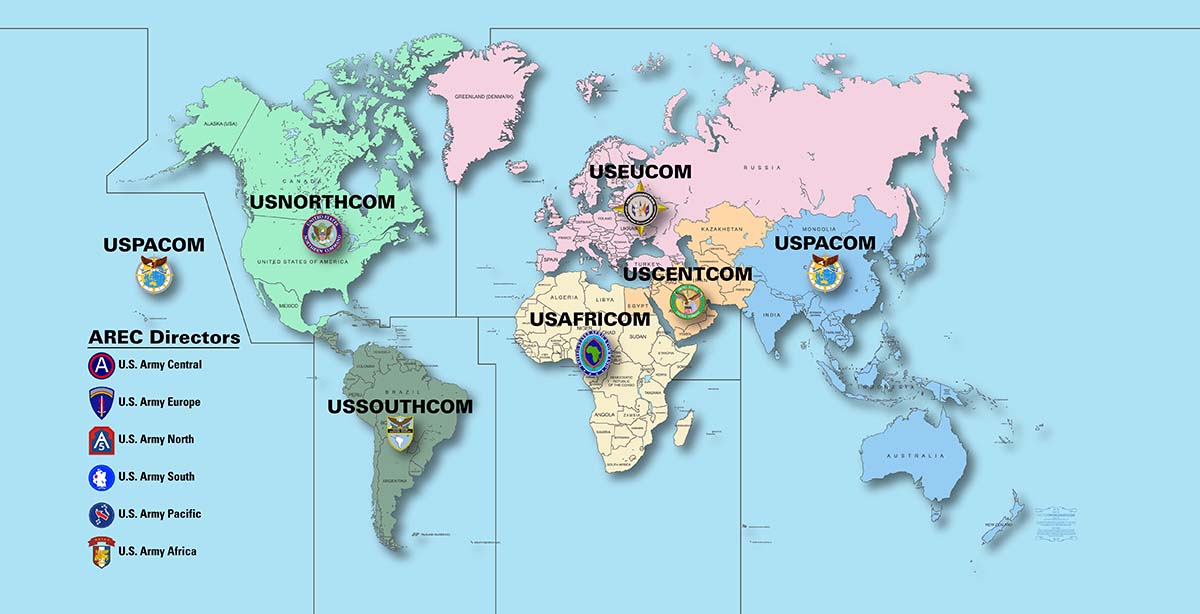A partnership to manage resources and protect the environment on a global scale
Across decades and continents, war and armed conflict have had overwhelmingly negative effects on the environment. Environmental systems and natural resources are critical components of the contexts where U.S. Army Civil Affairs operates. Owing to the environmental impacts of conflict, the complexity of environmental management in operational areas, and the role of resources in local communities impacted by conflict, expertise on the environment is critical to Civil Affairs operations — particularly in the specialist area “38G/4E – Environment and Natural Resources.”

What is 38G/4E?

The 38G/4E — Environment and Natural Resources Specialist advises and assists on, or reestablishes and directs, the management of environmental protection and resource management measures relating to land use for the protection of human health, natural resources, and native ecosystems.
They emphasize balancing the preservation, access, and utilization of resources for development of economic opportunities at local communities through national interests.
They also provide technical expertise to national and provincial officials on plans, policies, and laws related to the utilization of indigenous resources to benefit effective governance and economic stability, ensuring the safety of the ecosystem for the benefit of the entire population.
Why UW–Madison?
UW–Madison has a long-standing history of support of the Civil Affairs branch of the United States Army. Most notably, during World War II, a Civil Affairs Training School (CATS) was established on the UW campus for the purpose of training officers in the key skills necessary for post-war reconstruction and development.
In October of 1943, 100 officers came to UW–Madison, living and taking classes in Chadbourne Hall (the former women’s college). UW–Madison became the destination for CATS precisely because it was recognized not only for the depth of its expertise, but also for the breadth of its fields and areas of knowledge.
One of UW’s most storied areas of expertise is the environment. There is a deep history of environmental innovation, from “Father of the National Parks” John Muir to Aldo Leopold, who wrote the book on restoration ecology, and so many more. With its Nelson Institute for Environmental Studies — which is the campus entity leading the partnership — UW–Madison is a premier destination for the kind of environmental research, education, and training that can support U.S. Army Civil Affairs 38G/4E initiative.
“This partnership fits perfectly within our work to advance a more environmentally, economically and socially sustainable world through innovation and collaboration.”
Paul Robbins, dean of the Nelson Institute
Conflict and the Environment

Human conflict events can result in dramatic habitat alteration, environmental pollution, and biodiversity losses.

The impacts of human conflict connect to human health and well-being in the areas of air, water, food, and habitations.

When institutions become frail or collapse in pre- and post-conflict settings, those that regulate the use of resources and the management of water, air and land — as well as conservation infrastructure — are especially vulnerable.

Environmental insecurity — which leads to low food stocks, water supplies, and other critical environmental services — can exacerbate stress for communities in, or on the brink of, conflict.
U.S. Army Environmental Management for the Operational Environment
In the spring of 2024, the Nelson Institute at UW–Madison will lead a five-day, in-person training course for military personnel to understand and manage environmental and natural resource issues to promote stability in complex environments. The course, taught in partnership with the U.S. Army Civil Affairs and Psychological Operations Command (Airborne), will focus on:
- Environmental systems and human impacts
- Environmental risk and stability
- Adaptive resource management
- Communication, partnerships, and conflict resolution
- Conservation, wildlife crime, and threats
- Disaster/climate resilience
- International laws and agreements
- Traditional and place-based knowledge
- Restoration and environmental remediation (with site visit to the former Badger Army Ammunition Plant)

